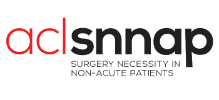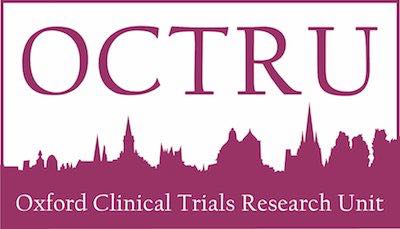FAQs:
What will happen to me if I decide to take part?
Are there any possible disadvantages or risks from taking part?
What are the possible benefits of taking part?
Will my General Practitioner/family doctor (GP) be informed of my participation?
Will my taking part in the study be kept confidential?
Will I be reimbursed for taking part?
What will happen if I don't want to carry on with the study?
What happens at the end of the study?
How have patients and the public been involved in this study?
Who is organising and funding the study?
Further information and contact details.
No. Taking part in this study is entirely voluntary and your choice and you do not have to decide straight away. Please feel free to take the information sheet home with you and discuss your participation with friends, family or your own GP. You are free to withdraw from involvement in our study at any time, without giving a reason. This will not affect the standard of care you receive.
What will happen to me if I decide to take part?
To begin with you will have your knee assessed and be asked to complete some questionnaires relatied to your knee. If you then decide to take part in the study you will have a 50/50 chance of receiving one of the options below:
Physiotherapy (Rehabilitation group) OR ACL reconstruction surgery (Reconstruction Group)
You cannot choose the procedure you are allocated to and you will receive your treatment within 18 weeks of being seen in Outpatients (in line with current NHS waiting time targets). The treatment you receive will be the standard operative or non-operative treatment which is provided at your local hospital.
Both groups will be monitored to make sure the treatment that has been allocated to them is appropriate. If you are having problems with your treatment this will be assessed by your clinical team. If you need further treatment, this will be arranged.
Whichever treatment you receive, you will also be asked to complete an email follow up questionnaire at six months; twelve months and eighteen months afterwards. The questionnaires will only ask for information about your injured knee and the associated impact of this on your quality of life. For example questions will ask about whether or not your knee feels stable and if you have restricted your activities because of your knee.
You may also be contacted by one of our researchers and invited to discuss your experiences of the treatment.
Are there any possible disadvantages or risks from taking part?
There are no anticipated risks or disadvantages to participating in this study. Whichever type of treatment you are allocated to, your care will be the standard treatment provided by your local hospital and it will be delivered by a competent and trained clinician. There are risks associated with any surgery and physiotherapy treatment given in the NHS. These will be discussed with you as part of routine care. There are no anticipated extra risks involved in participating in this study.
What are the possible benefits of taking part?
We can’t guarantee any benefit to patients who take part in this study. Both surgery and non-operative management are routine care in the NHS and each is a good option for you. Until we’ve completed the study, we can’t be sure which one is best. The main benefit from your participation in this study will be the information we get, which should help improve the future treatment of patients who have an ACL injury.
Will my General Practitioner/family doctor (GP) be informed of my participation?
With your consent we will notify your GP about your participation in this study.
Will my taking part in the study be kept confidential?
Yes. All patient information will be stored on password protected computer databases or in locked filing cabinets. You will be allocated a study number and staff not directly involved with your care will know you only by this number. When the results of the study are reported, individuals who have taken part will not be identified in any way. Responsible members of the University of Oxford or your NHS Trust may be given access to data for monitoring and/or audit of the study to ensure we are complying with research regulations.
Will I be reimbursed for taking part?
You will not be compensated for your involvement in this study but reasonable travel expenses to the hospital for any appointments that are outside of routine care can be reimbursed. The local research team will provide further details about this.
What will happen if I don't want to carry on with the study?
Your participation in this study is voluntary and you can choose to leave the study at any time. If you decide to leave the study, your decision will be respected and this will not affect the care you receive.
What happens at the end of the study?
At the end of the study all the information we have gathered will be anonymised which means all the patients who have taken part will not be identified. The results of the study will be reported to the study funder. This report will be available in the public domain and will also be uploaded onto our website http://www.situ.ox.ac.uk/publications for your information. Some of the research being undertaken will also contribute to the fulfilment of a doctoral thesis. All those who participated in our study will be sent a summary of the study with details of where to find further information. We also plan to publish the results in a medical journal so others can read about and learn from the results of the study.
The University of Oxford, as study Sponsor, has appropriate insurance in place in the unlikely event that you suffer any harm as a direct consequence of your participation in this study. NHS indemnity operates in respect of the clinical treatment which is provided.
Taking part in the study will not affect your legal rights. If you wish to complain about any aspect of the way in which you have been approached or treated during the course of this study, you should contact your local principal investigator (contact details can be found on the All Sites page of this website).
Or
Carlos Areia, Trial Coordinator at the central office in Oxford by e-mail at acl_snnap@ndorms.ox.ac.uk or by telephone on (01865) 226174.
Or
You may contact the University of Oxford Clinical Trials and Research Governance (CTRG) office on 01865 572224, or the head of CTRG, email ctrg@admin.ox.ac.uk.
The Patient Advisory Liaison Service (PALS) is a confidential NHS service that can provide you with support for any complaints or queries you may have regarding the care you receive as an NHS patient at your local hospital. Your local NHS hospital will have PALS contact details.
How have patients and the public been involved in this study?
A Patient and Public Involvement (PPI) group have contributed to the design of the trial and will continue to be involved throughout the study, overseeing the study progress.
Who is organising and funding the study?
The study is organised by a team of surgeons, nurses, physiotherapists, patient representatives, health economists and statisticians working with Professor David Beard and Professor Andrew Price. The team are based at the Nuffield Department of Orthopaedics, Rheumatology & Musculoskeletal Sciences (NDORMS) at the University of Oxford. The study is managed by the Surgical Intervention Trials Unit (SITU) and SITU is part of the Oxford Clinical Trials Research Unit (OCTRU). OCTRU is a UKCRC registered Clinical Trials Unit.
ACL SNNAP is funded by the National Institute of Health Research, Health Technology Assessment Programme (Ref 14/140/63). You can access information about them on their website http://www.nets.nihr.ac.uk/programmes/hta.
To protect your interests, all research in the NHS is looked at by an independent group of people called a Research Ethics Committee. This study has been reviewed and approved by Health Research Authority. This study has also been reviewed and approved by your local hospital’s Research & Development department.
Further information and contact details:
If you have any questions please contact the clinical research team at your local hospital.
You may also contact the Oxford ACL SNNAP team via e-mail at acl_snnap@ndorms.ox.ac.uk or telephone number 01865 227715. Information about the study is also available on the SITU website.




